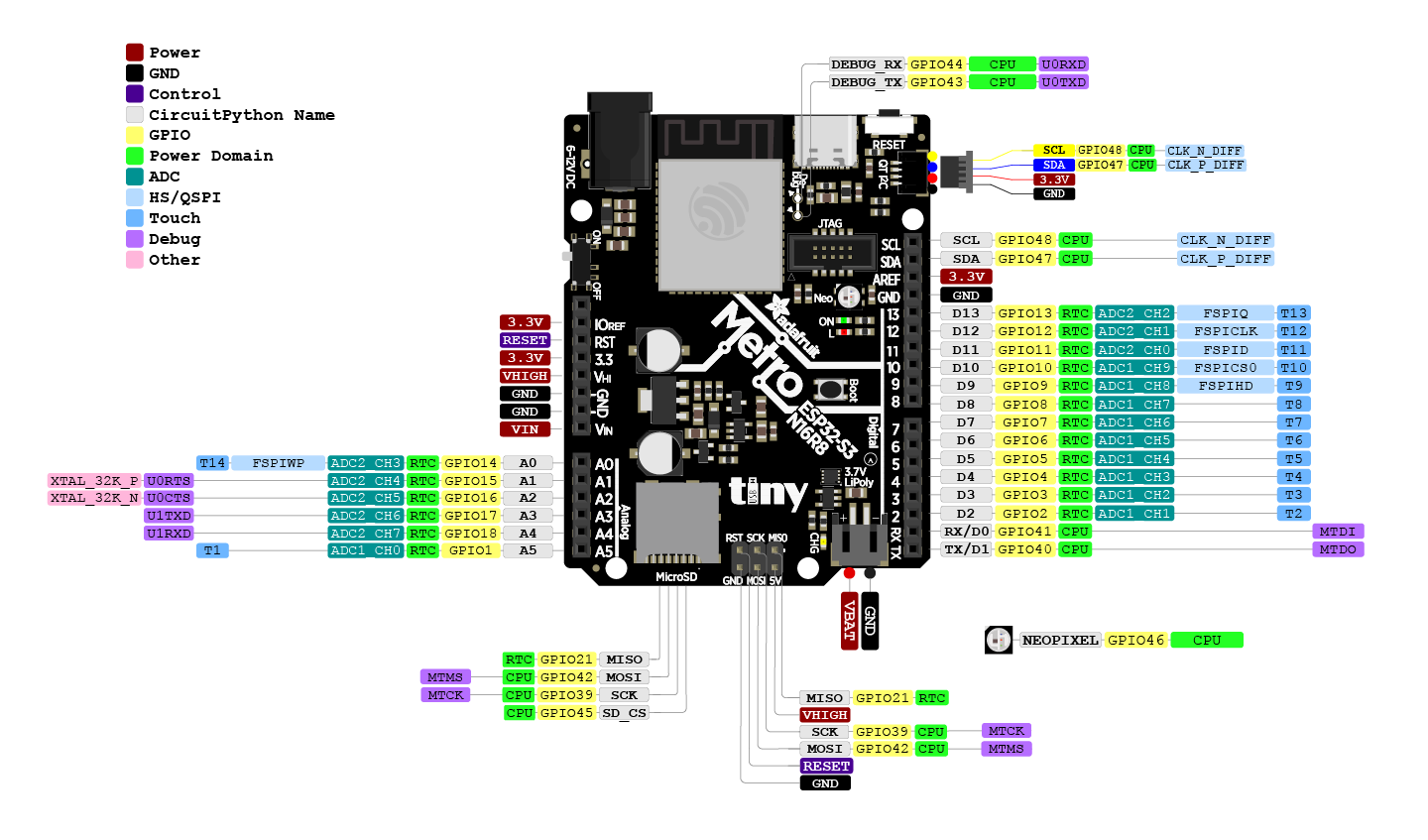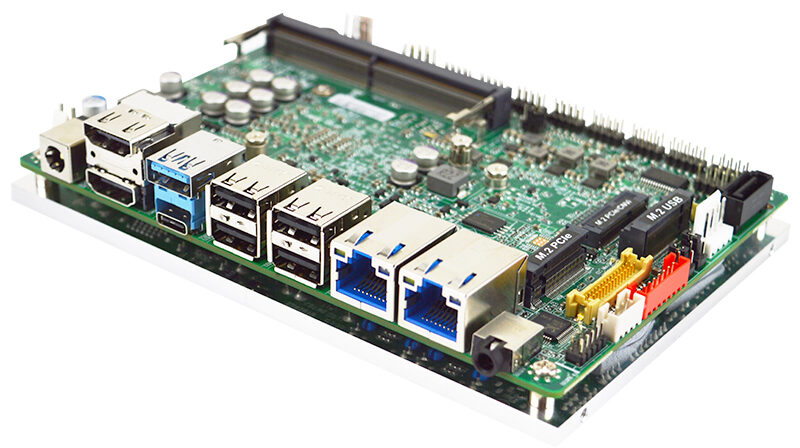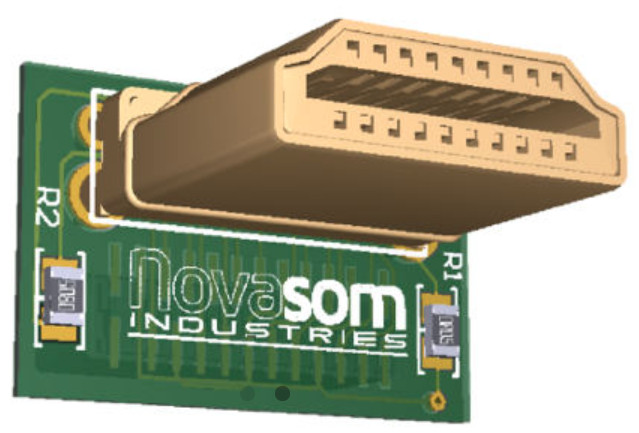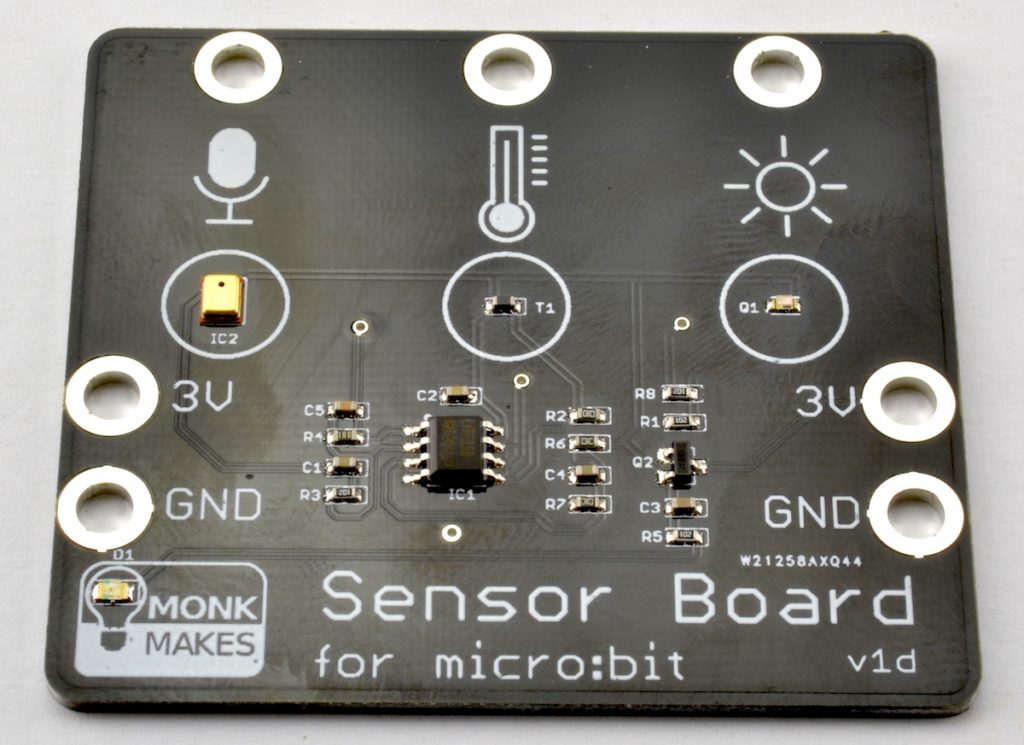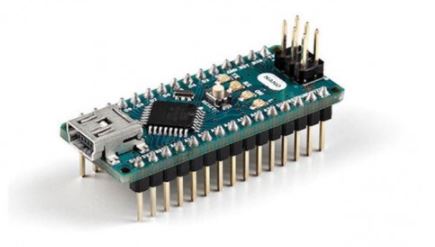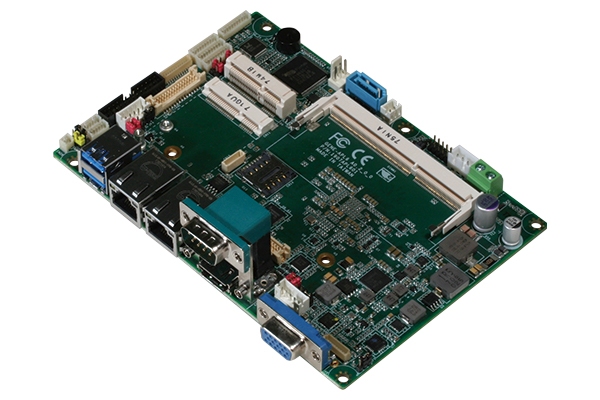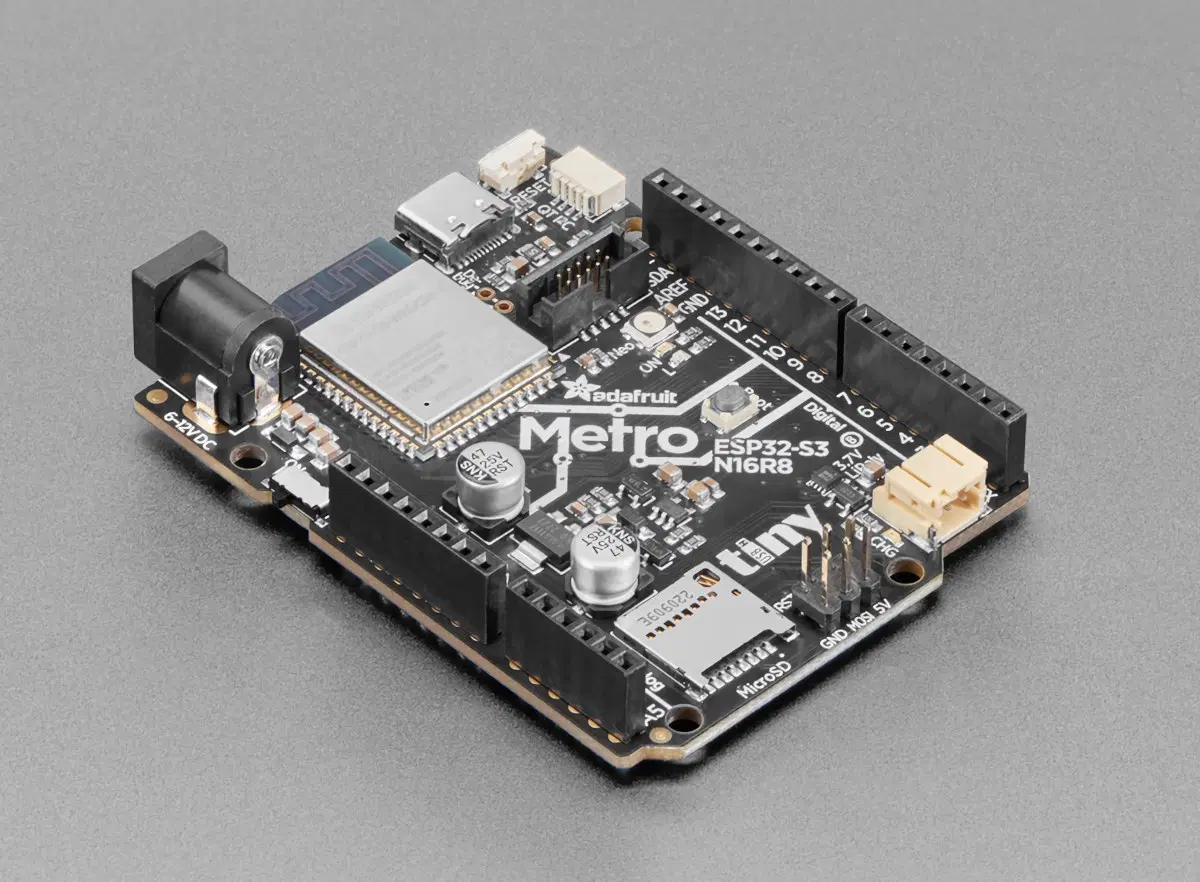
The Adafruit Metro ESP32-S3 is a development board based on the ESP32-S3, designed in a form factor similar to an Arduino UNO or Adafruit Metro. The board features built-in Wi-Fi Bluetooth capabilities and can be programmed with Arduino or Circuit Python.
The core of the board is an ESP32-S3 microcontroller, which includes a dual-core LX7 processor clocked at 240 MHz. Additionally, it has integrated 2.4GHz Wi-Fi and Bluetooth 5 (LE), secure boot, and flash encryption features. In terms of memory, it boasts 16 MB Flash and 8 MB PSRAM, supports full-speed USB OTG, and has efficient low-power management for various applications.
The board comes with two STEMMA QT I2C connectors for further IO expansion, a JTAG header for debugging, a microSD card for extended storage, and a two-pin LiPo connector with an integrated battery protection feature. The board is primarily powered by a 5V USB-C connector but there is also this barrel jack for a max of 12V input power.
When it comes to software, the board can be programmed with Circuit Python but you can also program this board with Arduino IDE and ESP-IDF. You can find all the hardware guide and software installation guides on Adafruit’s website. The most fun thing about this board is that the board allows for the installation of Linux, for which Adafruit provides a dedicated guide.
Adafruit Metro ESP32-S3 Key Specification:
- Wireless Module: ESP32-S3-WROOM-1.
- Processor: ESP32-S3 dual-core LX7, up to 240 MHz, with Vector extension for machine learning.
- Memory: 8MB PSRAM.
- Storage: 16MB SPI flash; MicroSD card slot.
- Connectivity: WiFi 4, Bluetooth 5 with LE/Mesh; PCB antenna.
- Certifications: FCC/CE.
- USB: USB Type-C for power and programming.
- Expansion Options:
- Arduino UNO-compatible headers.
- STEMMA QT connector for I2C devices (with power switch).
- Debugging Tools:
- Serial via USB-C.
- 10-pin JTAG header.
- Optional serial debug output pins.
- Additional Features:
- Reset and DFU buttons for ROM bootloader access.
- LEDs (On/Charge/User) and status NeoPixel with controlled power.
- Power Supply:
- 6V-12V DC via DC jack.
- 5V via USB Type-C.
- LiPo battery support with charging over USB-C; MAX17048 I2C battery monitoring chip.
- Power Consumption: Deep sleep mode uses ~100uA from a LiPo battery.
- Dimensions: 72 x 53.2 x 14.8mm (Arduino UNO form factor).
A few months back Adafruit the Rev A of the Metro ESP32-S3 board, but it had an issue where they shared signals between the PSRAM, NeoPixel RGB LED, and SPI/SD card pins. That caused malfunctions when these particular features were used together. So Adafruit now offering replacements for those who bought the board before November 8.
You can purchase the Rev B of the board on Adafruit for $24.99 which does not include shipping.





